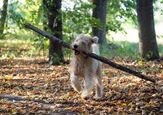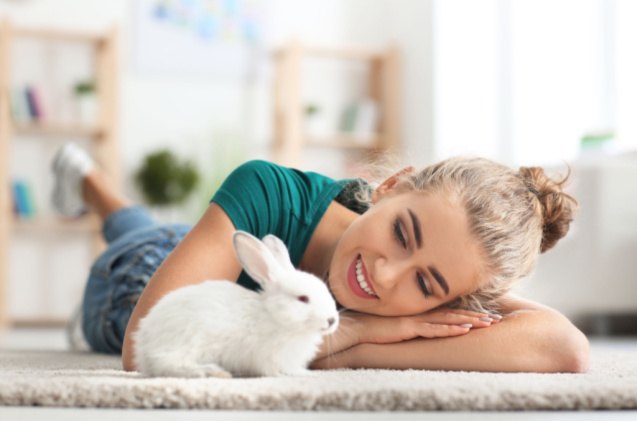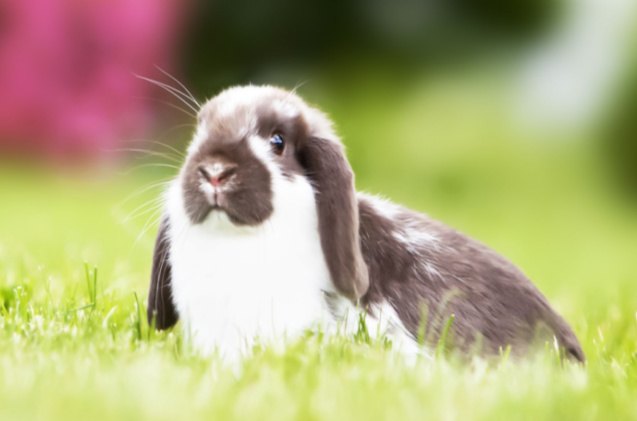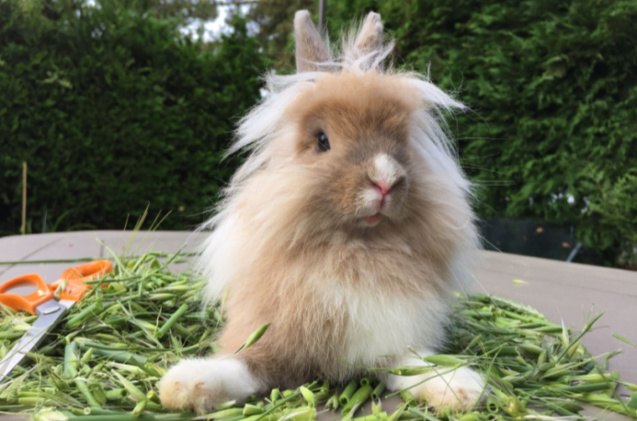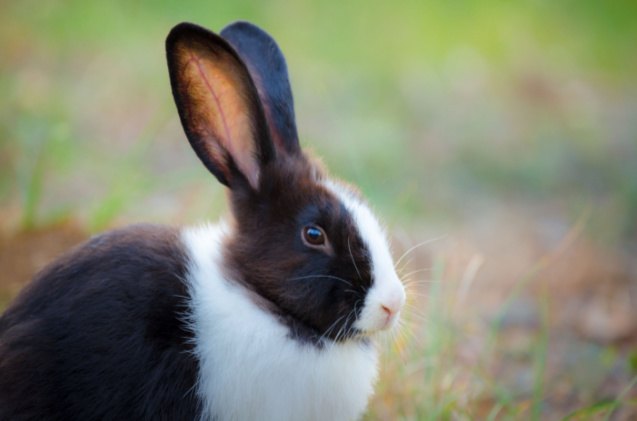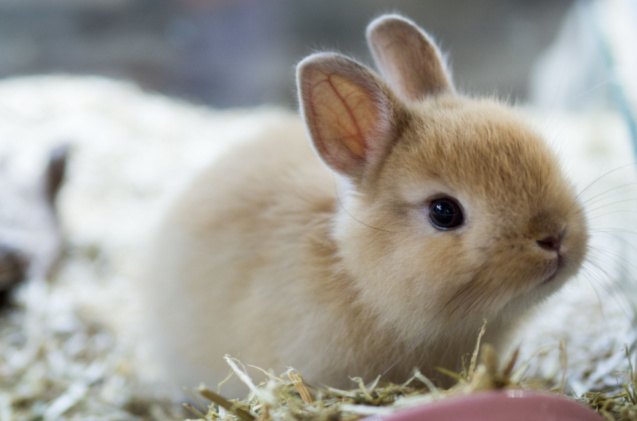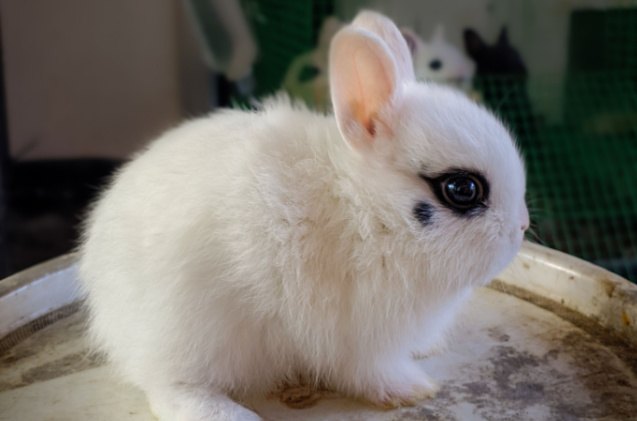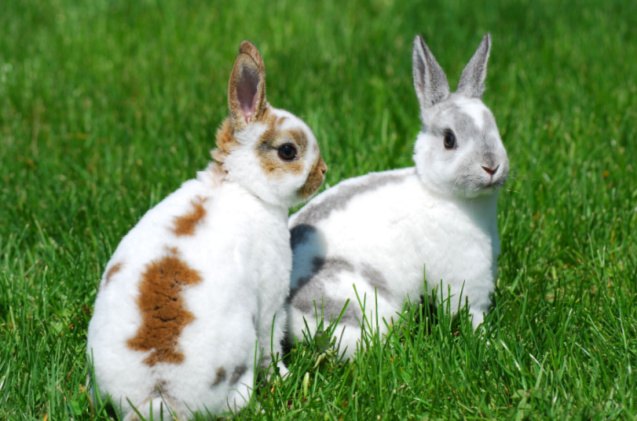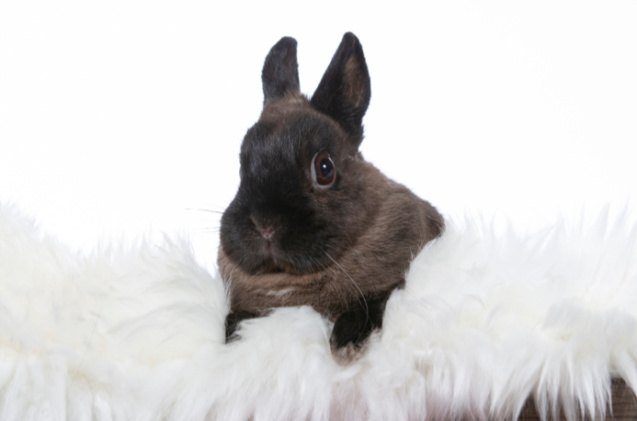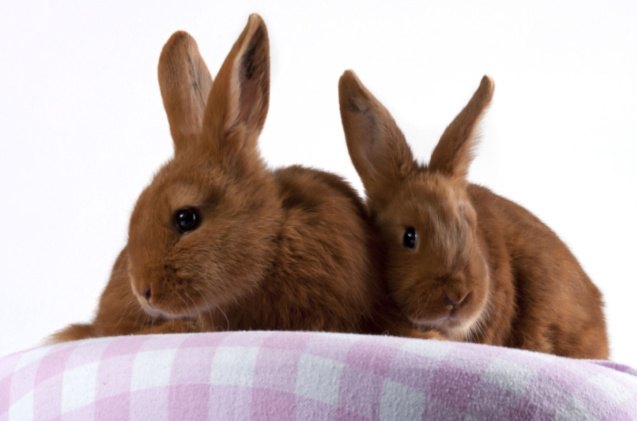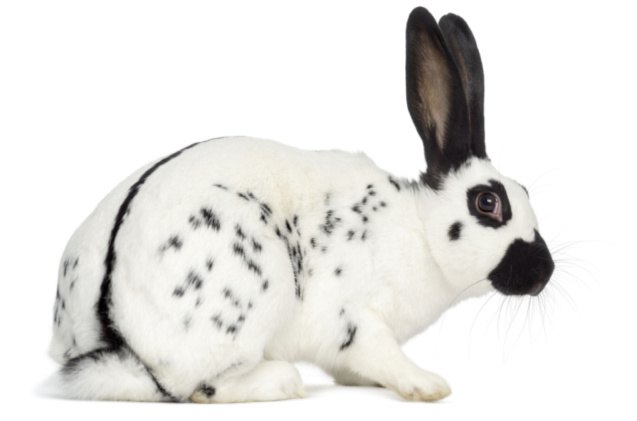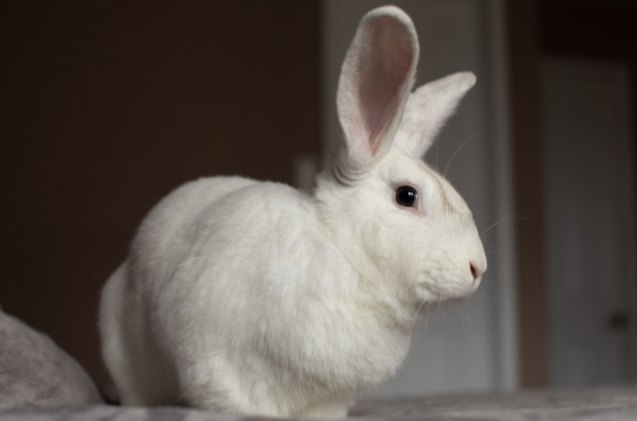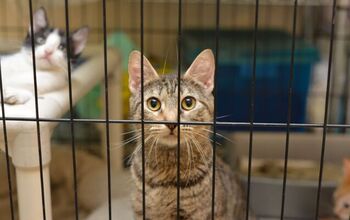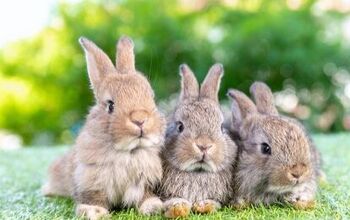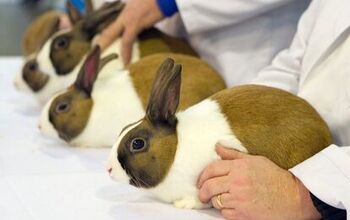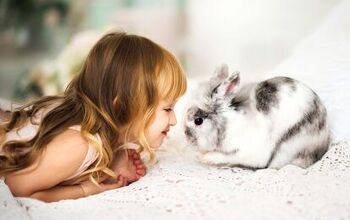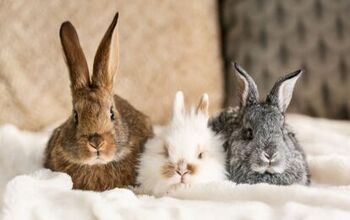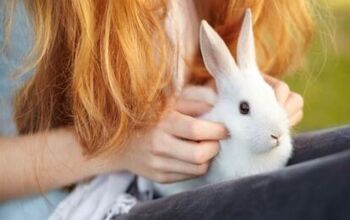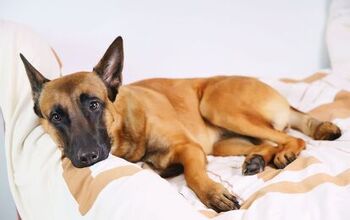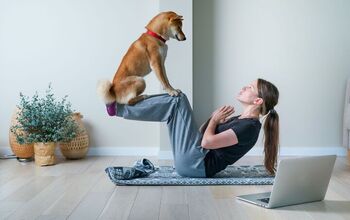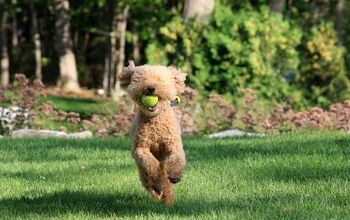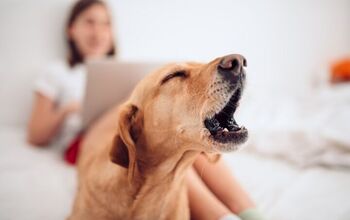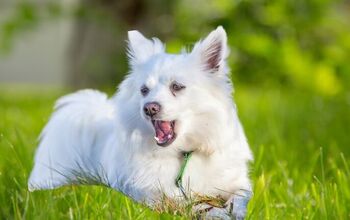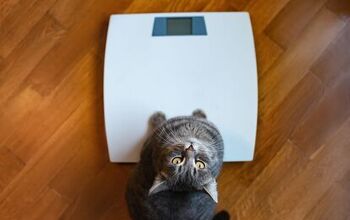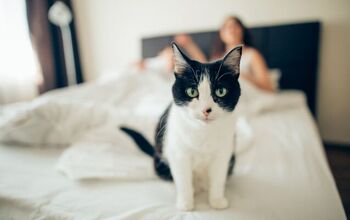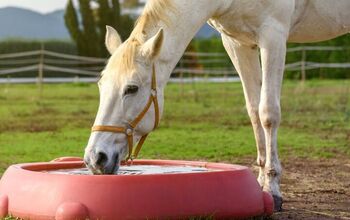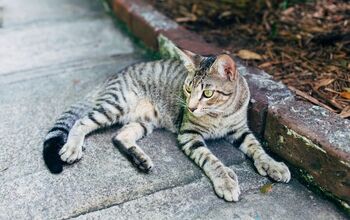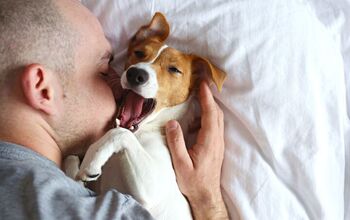10 Best Rabbits for Apartments

When you live in an apartment and want to keep a pet, your options are often limited – not all types of pets are allowed in an apartment, and even when they are, the living environment might not be best suited for their needs. Luckily, that’s not the case for most rabbits! Generally small, well accustomed to life indoors, and quiet enough not to disturb your close neighbors, rabbits make great apartment pets. However, not all breeds of rabbits are the same – some might thrive in a farm-like setting and others get depressed when cooped up for long, so apartments tend to be a no-go for these bunnies. However, there are plenty more that won’t mind being your roommate – these are the 10 best rabbits for apartments, based on their size, personality, and requirements.
#1 Mini Lop Rabbit
Originally known as klein widder or “little hanging ear”, the adorable Mini Lop is easily recognizable for his big, long ears that fall to the sides of the face. This is a medium rabbit breed that will stay relatively small even when fully grown, reaching 4.5 to 6 pounds on average, so they can be considered petite enough to be kept in an apartment. What’s more, they have an affectionate nature and friendly, sweet disposition which will make them a lovely pet for families with children, singles, or seniors. The ARBA recognizes a variety of colors and markings for this breed, so you’ll be surprised at the diversity and cuteness of Mini Lops – anyone can find a perfect bunny to fall head over heels for.
#2 Lionhead Rabbit
Tiny but mighty, the Lionhead rabbit is a dwarf breed, meaning it weighs only 2.5 to 3.5 pounds on average. Perfect if you live in a small apartment and want to ensure that your new pet will feel comfortable and have plenty of room to roam around! The most iconic trait of the Lionheads is, as their name hints at, the lion-like wooly mane that encircles their head and gives them a cute fluffy look. Sweet, sociable, and quite playful, the Lionhead will love to explore and interact with you, so be sure to provide them plenty of time outside their enclosure and quality time with their favorite human.
#3 Dutch Rabbit
Considered to be one of the oldest domesticated breeds, the Dutch rabbit had its start as a breed in 19th century Holland and still remains a beloved family pet. Spotting a Dutch bunny isn’t difficult, as even though they come in different colors, they always have a specific set of markings unique to them – a broad white band that covers the shoulders and goes around the belly, a white “collar” behind their ears, and a wedge-shaped fur streak running up the front of their face. As a contrast, their ears and rumps are always in a dark color, such as black, blue, or gray – to name a few. These curious, energetic, and friendly bunnies will make great companions to families of all sizes, and usually weigh 4.5 to 5.5 pounds.
#4 Netherland Dwarf Rabbit
Just because you live in a stuffy little studio, it doesn’t mean that you can’t have a pet that will be perfectly happy to share it with you – such as the tiny Netherland Dwarf rabbit. While, like all bunnies, they’ll need plenty of time to explore and play outside of their enclosure, considering that they weigh just 1 to 2.5 pounds on average, the amount of space they need to hop around isn’t all that much. At first, a Netherland Dwarf rabbit might be skittish or shy, but when properly socialized, they are sweet, gentle, and very cuddly rabbits. A wonderful pet rabbit for a first-time owner, singles, or seniors looking for a loving companion.
#5 Dwarf Hotot Rabbit
Unique-looking, small, and utterly adorable, the Dwarf Hotot rabbit will sweep you off your feet. They share their striking looks with their bigger cousins, Blanc De Hotot, which means that they boast a pristine white coat with a ring of black that encircles their eyes, giving the appearance of a bold eyeliner. These bunnies really leave an impression! A dwarf breed, they will weigh only 2.5 to 3.5 pounds on average and won’t need an enormous hutch to feel comfy, making them great pets for apartments. As for their personality, they are as sweet as they look – friendly, affectionate, and playful when properly socialized, a Dwarf Hotot rabbit will be a delight to spend time with.
#6 Mini Rex Rabbit
With velvet-like, plush fur and compact, rounded bodies, the Mini Rex rabbits are the most elegant bunnies around – without a doubt! These luxuriously soft rabbits are a delight to pet and even more of a delight to spend time with, as they are calm, quiet, and sweet as they come. Despite their fur being plush and thick, it’s not difficult to groom, so if you’re worried about having to brush your pet on a daily basis to keep your apartment hair-free, don’t – these rabbits need to be brushed only every two weeks. A small breed, the Mini Rex weighs only 3.5 to 4.5 pounds on average and will fit in beautifully in almost any environment, provided that their basic needs are met – even if you live in a small apartment, you can lavishly house a Mini Rex without sacrificing much space for their enclosure.
#7 Polish Rabbit
With their chubby cheeks, short fleshy ears, and big round eyes, the Polish rabbit is cute as a button and charming to boot. These rabbits are gentle, calm, and quite affectionate, and tend to be very cuddly and sociable with their humans, which makes them a perfect match for families with older children, singles, or even seniors looking for a loving companion in their golden years. As a small rabbit breed, they are ideally suited for people who live in apartments, as they weigh only 2.5 to 3.5 pounds in their adulthood. They have short flyback fur that’s soft to touch and is recognized in six variants by the ARBA: white (with either blue or red eyes), black, blue, chocolate, and broken pattern.
#8 Thrianta Rabbit
No one can deny that gingers are utterly charming, and the same is true for rabbits – such as the one-of-a-kind Thrianta. This breed boasts fiery red fur as its defining trait that is unique to the breed – there are no Thriantas in any other color but the stunning ginger. Weighing 4 to 6 pounds when fully grown, these bunnies are small enough to raise in an apartment but not too small to be a pet to families with younger children – they are petite enough to be handled but not too fragile as dwarf breeds tend to be. Thriantas have a well-rounded personality, they are gentle, sweet-natured, and very sociable and will make an excellent pet, even for beginner owners.
#9 English Spot Rabbit
With a long history of being raised as a show rabbit, it’s no wonder that English Spot boasts impressive looks! These rabbits have been recognized by ARBA for almost a century, in a specific set of coat markings that can come in various colors, but is unique for the combination of spots, circled eyes, a butterfly mark on the nose, and a herringbone back stripe. A medium-sized rabbit, the English Spot will weigh 5 to 8 pounds in maturity and won’t mind living in an apartment as long as they get plenty of time outside their enclosure. Playful, energetic, and quite affectionate, the English Spot rabbit will quickly steal your heart – they make lovely companions for beginner owners, families with children, or singles and seniors.
#10 American Rabbit
Always wanted to have a pet rabbit that looks like the bunny from Alice in Wonderland? Look no more, because the American Rabbit will be everything you’ve ever dreamed of. These bunnies are recognized by ARBA in two coat colors, blue and the more common white, which is paired with striking red eyes. Weighing 9 to 11 pounds on average, they are categorized as large breed rabbits, but it still doesn’t mean that they can’t happily live in an apartment – these are still small animals that don’t need an unreasonable amount of space to thrive. Laid-back, docile, and generally calm, the American Rabbit will make an excellent pet for families with young children, or singles and seniors that prefer a gentler, less active bunny.
Are Rabbits Good Apartment Pets?
Most pet rabbits are suited to life indoors, as they are safe from predators and extreme weather while inside, and the environment can easily be adapted to suit their needs without majorly disrupting your personal style and decor. What’s more, there are plenty of dwarf and small breed rabbits that will find your small apartment a spacious castle from their perspective, so you don’t have to worry about your living quarters feeling confined to your pet.
However, there are a few things to have in mind if you want to keep a pet rabbit in an apartment, both to ensure their happiness and wellbeing and your own peace of mind. Here’s what you need to know!
- Rabbit-proof your home
The first and foremost thing that any rabbit owner has to do if they plan on keeping their pet indoors is to make sure that their home is safe for rabbits. Naturally mischievous and big chewers, rabbits tend to explore their environment by nibbling on things – and that doesn’t bode well for your furniture, carpets, baseboards, and cables. Not only that they can easily ruin any of your valuable possessions if they are left within reach, but rabbits can be dangerously harmed if they manage to chew on something dangerous, e.g. electric cables or a plant that’s poisonous to them. This is why you need to rabbit-proof your home before getting a bunny as a pet – it will keep them and your possessions safe.
- Time outside the enclosure is a must
A rabbit’s enclosure should be around 4 times bigger than a rabbit – which, if you get a dwarf rabbit, isn’t all that big and can fit inside most apartments. However, that doesn’t mean that your pet bunny should spend all of their time inside their pen or hutch. It’s just a safe haven to retreat to, a place where their food and potty are, and a secure enclosure you can keep them confined in when you’re not at home or at night while you sleep. The majority of their time should be spent outside the enclosure, where they can hop around and explore to their heart’s desire. Activity and exercise are important for rabbits and shouldn’t be neglected, especially if you live in an apartment and aren’t able to provide safe outdoor outings for your pet.
- Neuter/spay and litter train your rabbit
In addition to working on forming a bond with your pet, you need to spay or neuter them to eliminate potential destructive and aggressive behaviors from the very start. Not only that fixed rabbits have a better personality (and tend to be happier) but they are also at less risk for serious diseases, such as uterine cancer. It also eliminates the pesky territorial urine marking issues – which can be particularly problematic when you are living in an apartment.
Even if they are neutered or spayed, rabbits still need to be housetrained if you want to make sure that they don’t pee or poop all over your apartment. While they are more difficult to litter train than cats or dogs, they can be taught to go potty in a designated place in the house – it just takes a bit more patience.

A proud mama to seven dogs and ten cats, Angela spends her days writing for her fellow pet parents and pampering her furballs, all of whom are rescues. When she's not gushing over her adorable cats or playing with her dogs, she can be found curled up with a good fantasy book.
More by Angela Vuckovic
